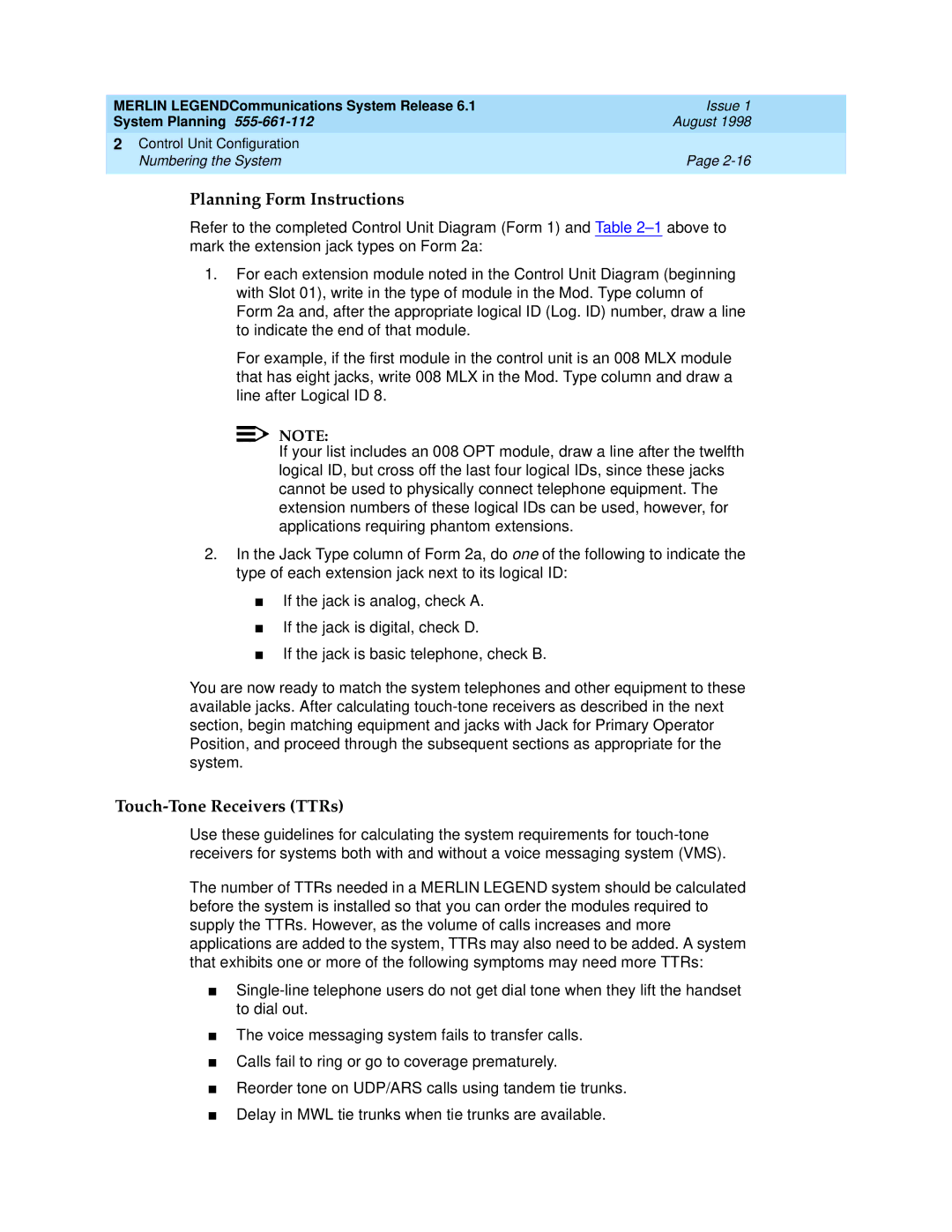
MERLIN LEGENDCommunications System Release 6.1 | Issue 1 |
System Planning | August 1998 |
|
|
2Control Unit Configuration
Numbering the System | Page |
Planning Form Instructions
Refer to the completed Control Unit Diagram (Form 1) and Table
1.For each extension module noted in the Control Unit Diagram (beginning with Slot 01), write in the type of module in the Mod. Type column of Form 2a and, after the appropriate logical ID (Log. ID) number, draw a line to indicate the end of that module.
For example, if the first module in the control unit is an 008 MLX module that has eight jacks, write 008 MLX in the Mod. Type column and draw a line after Logical ID 8.
![]()
![]() NOTE:
NOTE:
If your list includes an 008 OPT module, draw a line after the twelfth logical ID, but cross off the last four logical IDs, since these jacks cannot be used to physically connect telephone equipment. The extension numbers of these logical IDs can be used, however, for applications requiring phantom extensions.
2.In the Jack Type column of Form 2a, do one of the following to indicate the type of each extension jack next to its logical ID:
■If the jack is analog, check A.
■If the jack is digital, check D.
■If the jack is basic telephone, check B.
You are now ready to match the system telephones and other equipment to these available jacks. After calculating
| 2 |
Use these guidelines for calculating the system requirements for
The number of TTRs needed in a MERLIN LEGEND system should be calculated before the system is installed so that you can order the modules required to supply the TTRs. However, as the volume of calls increases and more applications are added to the system, TTRs may also need to be added. A system that exhibits one or more of the following symptoms may need more TTRs:
■
■The voice messaging system fails to transfer calls.
■Calls fail to ring or go to coverage prematurely.
■Reorder tone on UDP/ARS calls using tandem tie trunks.
■Delay in MWL tie trunks when tie trunks are available.
